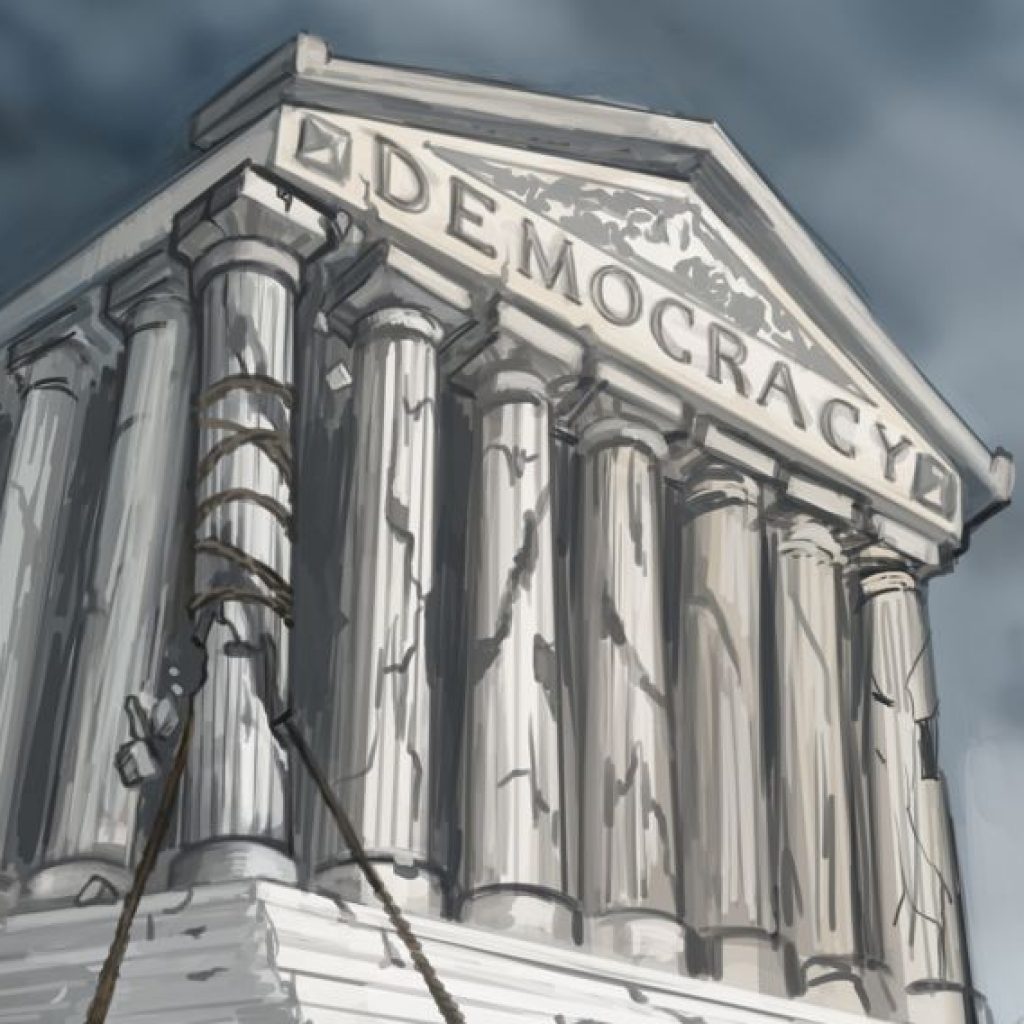The Bafflement between democracy and democratisation

By Adnan Pavel
“Democracy is the worst form of Government,
except for all those other forms that have been tried from time to time”- Winston Churchill.
“Men’s capacity for justice makes democracy
possible, but men’s inclination to injustice makes democracy necessary” – Reinhold Niebuhr.
Voters turnout is just one of the many variables of measuring democracy but not
just the only available one. Let’s take
the Uk as an example; from 1918 till 2019, voters’ turnout was always below 80%
apart from the 1950 general election in the UK. Only 42.20% voters turned up
during the UK Alternative vote referendum in the year 2011. Voters turnout was
as low as 59.4% in 2001 UK General election. But do all these make UK a weaker
democratic country? I do not think so! Voters turnout is too often used as weak
methodological means by both ruling and opposition parties in the developing
countries. The difference between democracy and democratisation is
misunderstood more than ever in the Global South.
Interestingly the very foundation of democracy was laid by a dictator named
Solon when he conquered Athens in 640 BC. His constitution first gave the opportunity
to its citizens to participate in the government. Obviously Solon had his agenda
that was to keep the “hoplites” happy as he needed them for the economic and
political dominance of Athens. Amusingly, we see the democratically elected
leaders are now derailing democracy and advocating autocratization. The
argument that in order to trade with rest of the world one needs to have
democracy seem obsolete to me considering the current geo-politics. Through
economic diplomacy and strong trading relationship, a nation can easily avoid the
fiction that can be created by weak performance of “democracy” variable in the
“liberalisation”, which is part of the “grand theory” in the study of
International relations.
Robert Dhal has democratised democracy by amplifying the dimension contestation
and inclusion in his “glorifying” idea of Polyarchy. Although the voting
turnout is in decline in the last decade but the reformation of the democracy
and its institution has surely given citizens more avenues to participate in
democracy and government. Let me set the record straight, I am a great devotee
of democracy but I just think the metaphor it depends on has become
increasingly hostile for the further democratisation of the government
institutions. Furthermore, although inclusion has been featured more
prominently by democratic countries but the aspect of contestation has been too
often snubbed.
Voters think the system is broken. It is not just the Trump effect; the “catch all” ideologies adopted by political parties to gain voters support compromising their own political ideologies magnified the distrust between ordinary electorates and politicians. The distrust between citizens and the democratic institutions is ever so growing. Let’s take Brexit for example. British electorates were so fed up with the politicians for their woolliness that even the hard-core Labour party supporters voted for the Conservative party once Boris Johnson said, “let’s get Brexit done”. There is a strong feeling among general population that the system of public policy is biased towards the potent. Free market economy means state should take a hands-off approach to businesses that has ultimately gave more power to the businesses at the cost of power of the politicians. People too often think that the idea of participating in direct democratic event is becoming irrational as politicians and democratic system can’t deliver the mandates. Professor Ronald Inglehart of University of Michigan warned that the world is experiencing stark democratic setbacks.
The argument that democracy can lead to prosperity is too often oversimplified. Many people in the Global South think that the West has used democracy as a form of intimidation and political deterrent. The idea of free-press, human rights may seem too post-materialistic when everyday survival is under threat. People focus more on the economic issues than the components of self-esteem until they reach to a certain economic ability. Weak economy and malfunctioning institutions will deteriorate citizens’ ability further to be well equipped cognitively and emotionally to run democracy.
Surely democracy has taken a detour, but will it ultimately survive?
